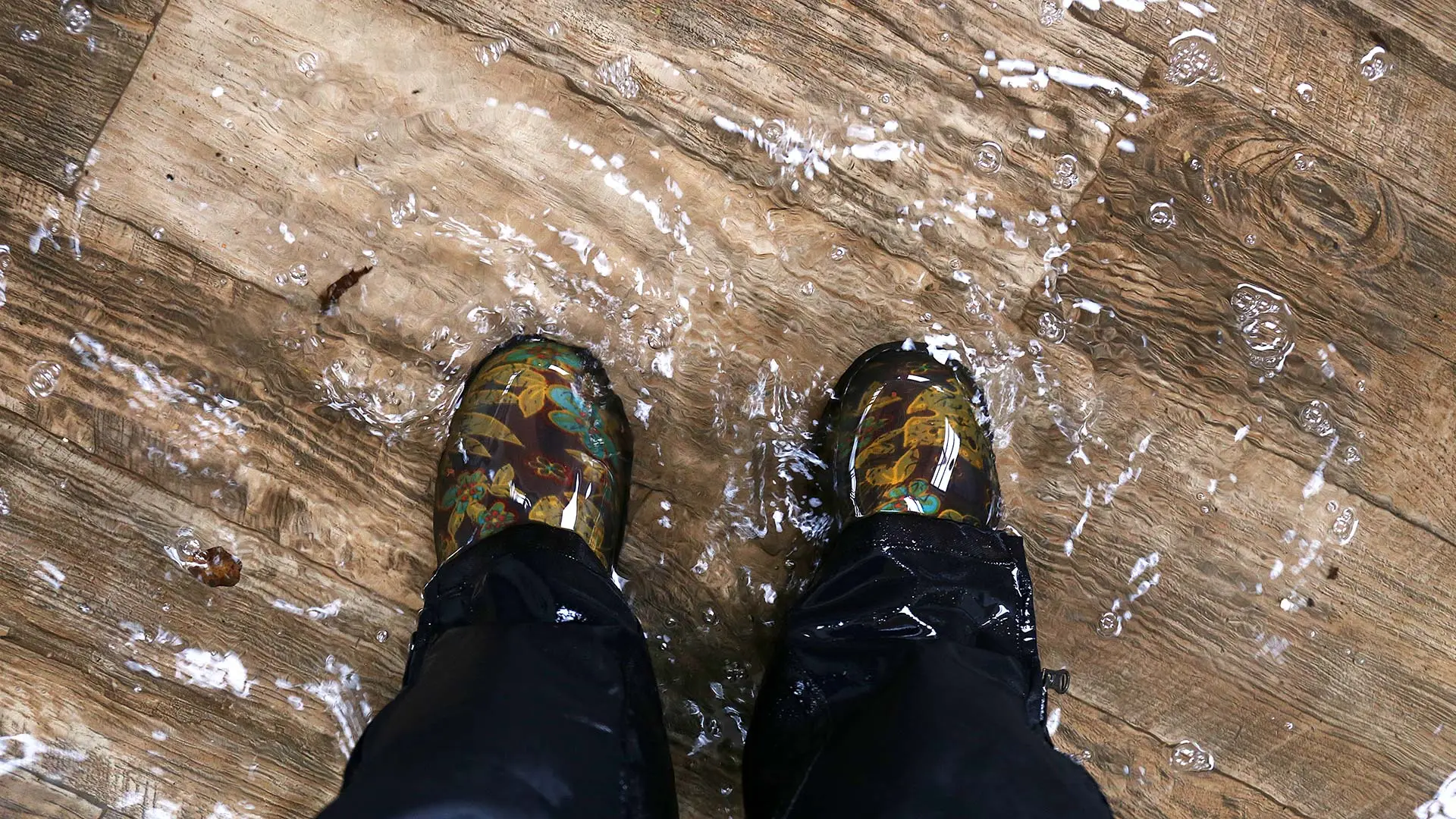Water damage is usually unexpected and always frustrating. There are multiple signs that point to it such as warping, discoloration, and/or odor. As soon as you recognize the damage, it's time to spring into action.
There are many reasons you might find water damage in your home, including broken pipes, water heater leaks, natural disasters, an overflowing toilet, or a leaky roof. It can be hard to know what the right next step is - do you try to repair it or do you replace the whole floor? When should you call in a professional? The one thing you do know is that something has to be done as quickly as possible to prevent further problems.
Homes in places like Plant City and Lakeland, FL are more likely to experience water damage due to natural causes such as hurricanes. No matter the reason for your water damage, time is of the essence. We will help you decide what your next steps should be.
How to Know if You Are Dealing With Water Damage
Sometimes water damage is really obvious and other times it is not. First, inspect the surrounding areas. You will know you are dealing with water damage if you notice any of the following signs:
- Warping - If you see bubbles, peeling, or cracks on the floor that were not there before the incident, chances are you have water damage.
- Discoloration - Check for new stains or any changes in the color of your floor. Dark spots could indicate mold or mildew.
- Crowning - This is when your floor planks become rounded with a high point in the middle and low points on the edges.
- Buckling - Buckling is when the floor detaches from the subfloor beneath it. It may separate at the seams or peel upward.
- Cupping - When your floor planks absorb water, the edges may curve upward. This indicates that your floor has absorbed moisture.
- Odor - If there is an obvious and foul new smell to your floor, this usually points to mold or mildew issues.
When Should You Repair Your Water Damaged Floors?
If the damage was relatively small, you may be able to salvage it instead of replacing the entire floor. There are a couple of different factors that come into play when deciding between repairing and replacing. You should consider repairing when:
1) The water damage isn't extensive. If the water covering your floor wasn't there for a long time, you may just be looking at some minor cosmetic repairs. If it is still a functional floor and it has not deteriorated, you are most likely fine with just a repair.
2) The water is clean. Clean water means that it does not pose a threat to the people in your household. Examples of this are an overflowed bathtub, dishwasher, or washing machine. Clean water can also come from a leaky pipe.
3) The area of water damage is completely dry within 48 hours. If the water on your floor dries within 24 to 48 hours, it most likely means that you are not dealing with any mold or mildew issues.
If you do decide to go ahead with a repair, you must be sure that the area is 100 percent dry using a fan or a dehumidifier. Jumping the gun and not waiting until it is dry may result in mold or mildew issues down the road.
When Should You Replace Your Water Damaged Floors?
Big incidents such as a natural disaster or a busted water heater usually mean it's time for a floor replacement. No matter the cause of your water damage, you have to figure out if it's time to bite the bullet and replace instead of repair. Reasons you should consider replacement include:
1) The water damage is extensive. After inspecting the area, you can usually tell if there is major damage and deterioration. If you notice that your subflooring is swollen or lifted, it is time for a replacement.
2) The water is unsanitary. Black water refers to water that is from something like sewage or a river. The amount of bacteria in this water can cause serious health problems and will almost always require replacement.
3) The area is wet for an extended period of time. If the water on your floor is not dry within 48 hours, you should assume that you have mold or mildew growth.

When to Call in a Professional
Deciding whether to tackle the project yourself or to call in a professional depends on your skill level, the urgency of the project, and the time you have available.
If your floor replacement is urgent because of extensive damage and mold/mildew issues, it is best to call in a professional team like ours to ensure the safety of you and others in your household. You do not want to tackle a big project like replacing your floor only to put yourself and your family at risk for mold/mildew exposure.
However, if your project is smaller with no mold/mildew risks and you have the time, you may be better off saving your money and repairing it yourself.
Call Our Office To Talk To An Expert About Your Water Damage
We understand that water damage can be stressful. That's why our experts are here to help you. If your property is located in Plant City, Lakeland, Winter Haven or a nearby city in Central FL, contact us at (863) 647-1800 to talk to an expert about a solution to your water damage.




Thanks for your comment!
Thanks for your feedback! Your comments have been successfully submitted! Please note, all comments require admin approval prior to display.
Error submitting comment!
There is a problem with your comment, please see below.